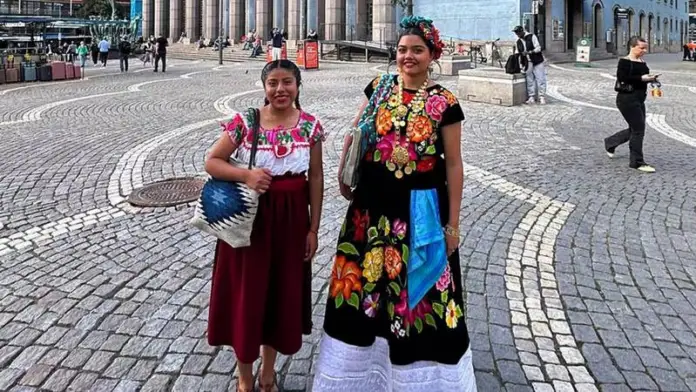:quality(70)/cloudfront-us-east-1.images.arcpublishing.com/elfinanciero/ASUSLLYA25GT7IEM4MDHA3SYH4.jpg)
Two young Zapotec indigenous women, aged 16 and 17, students at a community high school in the municipality of Teotitlán del Valle, Oaxaca, have for the first time achieved for Mexico the Diploma of Excellence in the World Youth Water Award, the most important youth competition in the field of water, promoted by the Stockholm International Water Institute (SIWI).
Within the framework of the World Water Week organized by the aforementioned institute, Mexico won this Tuesday the distinction with the work of Shanni Valeria Mora Fajardo and Rosa Mendoza Sosa, who designed a home filtration system to purify wastewater from textile dyeing in vegetable cultivation in their community, indicated the Water Network of the National Autonomous University of Mexico (UNAM).
What is the World Youth Water Award about?
In their project, the young women proposed “an accessible method for the treatment and reuse of inked water from the production of handmade wool rugs for growing vegetables,” in order to obtain positive results in their community, which is characterized by this ancestral tradition that is inherited from generation to generation.
The recognition, in the form of an honorable mention, was for those projects that can have a great positive impact on environmental and social issues and the Mexican students were awarded among more than 30 finalist delegations during the World Water Week held in Stockholm, Sweden.
“Shanni and Rosa are a pride for Mexico. They not only represent young people, but also women, indigenous populations and, above all, the future of science with a social sense,” said Jorge Arriaga, executive coordinator of the UNAM Water Network and the Regional Center for Water Security (CERSHI), under the auspices of UNESCO.
She explained that these types of competitions provide the opportunity for young Mexicans from any region, such as Shanni and Rosa, originally from Teotitlán del Valle, “to develop innovative ideas that contribute to the solution of water problems that benefit their environment, so we should feel proud of this achievement.”
She also pointed out that the participation and development of projects supported by the UNAM Water Network, Cershi, sponsored by UNESCO and the Swedish Embassy in Mexico “are a reflection of the fact that alliances can be generated so that among the various actors in society solutions can be obtained and water security can be achieved for all.”
Source: elfinanciero






